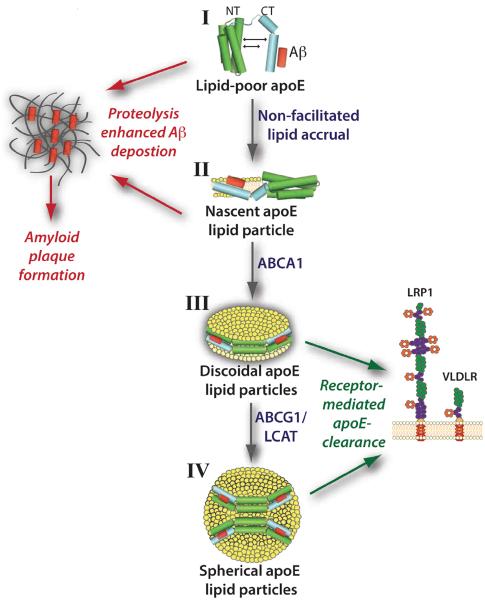Fig. (4). Putative effects of apoE lipidation on Aβ metabolism.
Lipid-poor apolipoprotein (apo) E is secreted from astrocytes and glial cells in brain and is lipidated in discrete stages (I-IV) by the collective action of ATP-binding cassette (ABC) transporter proteins (ABCA1 and ABCG1), lipid modifying enzymes and transfer proteins (e.g. lecithin:cholesterol acyltransferase (LCAT)). Poorly lipidated apoE (stage I) and nascent apoE particles (stage II) are more susceptible to proteolysis which may lead to greater Aβ deposition and enhanced plaque formation due to impaired clearance, whereas lipidated discoidal (stage III) and spherical (stage IV) apoE-containing lipoproteins are ligands for LDL receptor family members, potentially leading to enhanced binding and clearance of apoE-Aβ complexes from brain.

